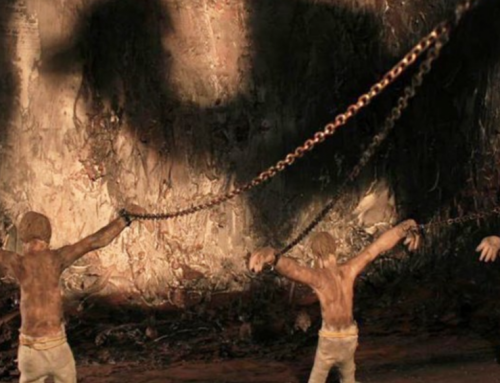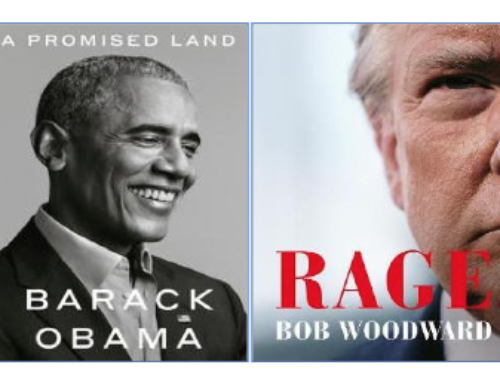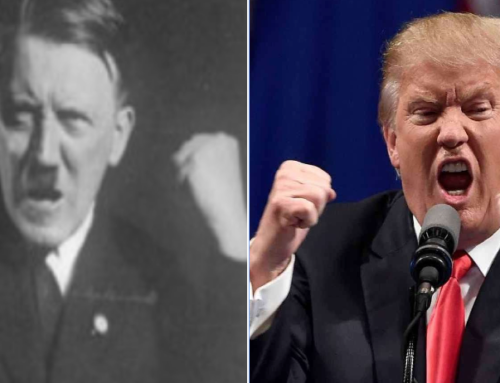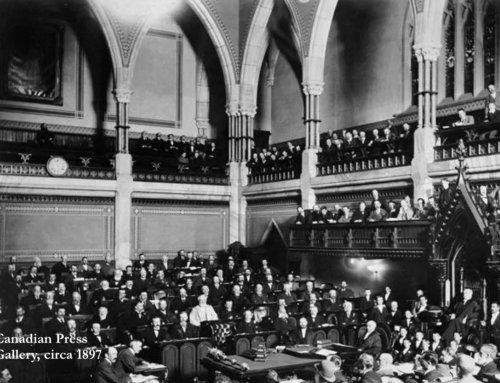fine line between open debate and abusive control
(6 minute read)
The tragedy in Charlottesville Virginia last week cannot be equated with millions of daily infringements on free speech but its violence exposes the problem of maintaining the fragile balance between two fundamental pillars of democracy: the people’s freedom versus the autocrats’ control.
When free speech turns abusive and violent, control is paramount. But when control turns abusive, free speech is paramount.
“Liberty means responsibility. That is why most men dread it.” – George Bernard Shaw.
Anarchy or authoritarianism?
The responsibility for free speech lies primarily with the citizens, regardless of whether it’s breached by the type of tragic violence in Charlottesville or the abuse of power in governments. The mandate of true leadership is to never blur the fine line between freedom and abuse of power because when free speech is disavowed or disintegrates into anarchy it sows the seeds of totalitarianism.
Whether Charlottesville, UC Berkeley or Selma, the violent extension of free speech comes from extremists on both the right and left and it is not the norm, but it is a pathogen that citizens must defend against, not from the violence – that’s the government’s role – but from the overreach by the governing agencies themselves. Of course, repudiate the violence, but more importantly, fight the abuse by those in power. Fervently fight all forms of extremism and, when necessary, support the use of force to crush it. But just as fervently, fight for free speech and wherever and whenever it is denied, employ the power of the public voice against authoritarianism. Often, those in positions of authority use isolated examples of disobedience and violence to rationalize the suppression of free speech, which is as dangerous as the disruption and violence itself. The rationale becomes a political platform on which to build the slippery slope to dictatorial rule.
“Disobedience is the true foundation of liberty. The obedient must be slaves.” – Henry David Thoreau.
At the top of the slippery slope, the first signposts are evident when those in power craft and enforce rules and regulations without any checks and balances – from Pierre Trudeau invoking the War Measures Act and Donald Trump issuing Executive Orders against immigrants to our local governments limiting citizen participation. These actions contravene the principles of free people and free speech and jeopardize the democratic process. Such tactics are deployed by people who are incapable, or unwilling, to take on the larger responsibility of ensuring liberty for the people, of the people, by the people. Because they’re arrogant or inept or obtuse. Or ‘all of the above.’
When free speech is threatened on the national stage, as in Charlottesville, it can start a conversation and initiate a johnny-come-lately reaction from complacent governments – not to mention the idiocy of Trump. But at the local level, free speech is usually muted by incompetent, so-called leaders who take advantage of an apathetic, reticent, dispirited public. This incompetence, and its underlying insecurity, is obvious in those elected officials who avoid the basic responsibility of fostering free speech and public participation. Instead they avoid and suppress it, which they get away with because of a compliant citizenry – common in most municipalities – who lack the will to take on the responsibility of fighting for what is right. And what is their right.
But it doesn’t have to be this way.
David and Goliath
 We all know the Biblical story of the Israelites facing the Philistines and David slaying the giant Goliath, and how the mythology has become a metaphor for weaker opponents overcoming stronger adversaries. And yet, still, too many small groups ‘dread’ fighting for their liberty and free speech because they don’t realize that they can actually be stronger and more powerful than the totalitarian Goliaths.
We all know the Biblical story of the Israelites facing the Philistines and David slaying the giant Goliath, and how the mythology has become a metaphor for weaker opponents overcoming stronger adversaries. And yet, still, too many small groups ‘dread’ fighting for their liberty and free speech because they don’t realize that they can actually be stronger and more powerful than the totalitarian Goliaths.
“Never doubt that a small, thoughtful group of people can change the world. Indeed, it’s all that ever has.” – Margaret Mead, anthropologist.
Nowhere is there a higher potential for small groups to reclaim the democratic process than in small towns. Because responsibility and action can manifest in “a small, thoughtful group of people” standing up to the miniature Goliaths who have usurped the democratic process for their own self-aggrandizement.
If we are to reclaim the fundamentals of democracy, which are anchored in free speech, then it has to be, first and foremost, at the local level. After all, it’s the best place for friends and neighbours (politicians and civilians), to get to know each other and work hand in hand to build transparency, accountability, collaboration, trust and prosperity, all of which depend on free speech.
So what’s the problem in small towns?

Cobourg, Ontario Canada
Freedom and control are opposites. Free speech and authoritarianism are incompatible. Bullying is a substitute for incompetence. Rigid control and insecurity are common bedfellows. Autocratic leaders are the foe of public good. And when leaders try to control the democratic process through anti-free speech rules, it not only discourages public participation, it deflates community spirit – the essence of a prosperous community.
If one were to drive through Cobourg, Ontario, a delightful community about an hour east of Toronto, one would see, at least on cursory observation, a town that seems to be prosperous, well-maintained and a happy home for more than 18,000 people. But appearances can be deceiving.
In many ways, Cobourg is no different than thousands of small towns, struggling with the new economics of mega-cities, rural-to-urban migration, hollowed out main streets, ever-mounting taxes and insular town councils opposed to transparency and accountability. In fact, many councils ostracize citizens rather than collaborate with them, embodying the political, elitist attitude that ‘they know best, just leave the governing to them.’ These elected officials think – if it can be called thinking – that an election every four years gives them a mandate to do as they see fit, with little or no responsibility to involve and respond to citizens on a regular basis. This isn’t just a failure of leadership, it’s a foot-in-the-door to autocratic rule. And if it is to be stopped, it has to be stopped by the citizens, even if it means stomping – hard – on the foot-in-the-door.
“Freedom is not something that anybody can be given. Freedom is something people take, and people are as free as they want to be.”– James Baldwin.
Cobourg is one of several towns in Northumberland County and they are not the only ‘bad actor’ – but they border on being the worst of an undemocratic bunch. And typical of municipalities across the country. Get this. The Cobourg Council does not allow a question and answer period for residents. Think about that for a moment. They do not allow an opportunity for the taxpayers – the people who pay the bills and elect them – to ask questions on a regular and frequent basis. That’s called avoidance by intent, muzzling by mandate. They’ve created a deterrent, a regulation that requires residents to apply to get on the agenda by making a ‘delegation’– some sort of presentation – in order to voice their concerns. In political parlance that’s called planned attrition – making it difficult or complex so that most people can’t or don’t go through the process. And it usually works.
In this, and many similar cases, the onus falls on residents to organize and mount strong citizen groups so that their voice can be heard. In Cobourg, the residents are doing this through the Cobourg Taxpayers’ Association (CTA) and yet, apparently, the council is suffering some trepidation about this group. Council should be encouraging and supporting such participation not ‘dreading’ it – unless they have something to hide.
If a leader does not cultivate and advance free speech, he or she is not a leader.
“All men [and women] recognize the right of revolution; that is, the right to refuse allegiance to, and to resist, the government, when its tyranny or its inefficiency are great and unendurable.” – Henry David Thoreau, Civil Disobedience.
It’s a contagion
 In a neighbouring municipality, Cramahe Township, the mayor, Marc Coombs, seems to suffer from a similar aliment – an aversion to free speech and public scrutiny, to which he has prescribed the usual antidote, muzzling.
In a neighbouring municipality, Cramahe Township, the mayor, Marc Coombs, seems to suffer from a similar aliment – an aversion to free speech and public scrutiny, to which he has prescribed the usual antidote, muzzling.
Last spring, a woman who is with the local press and represents a community association, spoke to the council, and after receiving enthusiastic applause from the public gallery, later received a muzzling email from the mayor. He said: “I thought that I would give you the heads up that due to numerous comments/complaints I rec’d [sic] after the last Council meeting I have made the decision to not allow anyone who is not a resident/taxpayer of Cramahe Township to ask questions during the “public question period” of our Council meetings.” He added. “I am sure you will understand that this is not a decision I take lightly but one that I believe is the correct one.”
Except he is wrong. He is taking it lightly. He decided to invoke mickey-mouse rules that trump (pun intended) the far bigger principle of free speech. It’s ‘leadership light’ versus ‘leadership right.’ He’s dead wrong – unless he’s trying to kill free speech and public participation. A closer look at the situation in Cramahe might suggest the mayor’s subversion tactics are not an isolated incident. He has also been questioned about his attempts to control the sharing of information with the Deputy Mayor and his fellow councillors – which is a clear indicator of an apprehensive autocrat. In this case, it’s about a lack of transparency in financial matters and an audit. The Deputy Mayor has had to challenge both the mayor and the audit firm in an attempt to gain proper and timely access to information. In business, this would be a firing offense. This same type of financial misrepresentation has been widely questioned in another neighbouring municipality, Port Hope. And there it went on for more than a decade. The lack of financial transparency is an all-too-common contagion in small towns and it’s happening in not-too-small amounts – millions and millions of taxpayer dollars.
The iceberg of democracy
 Although these are just three small examples, in three small towns, the control of free speech and the dearth of transparency is prevalent in thousands of small towns across Canada and the United States. It’s the norm, not the exception. Power-centric control by inadequate leaders is, literally, the tip of a very large and dangerous iceberg that is a very real threat to democracy. By an apathetic citizenry allowing this to go undetected, and unchallenged, the good ship democracy, instead of improving, is sailing deeper and deeper into perilous waters. In fact, too many communities are already taking on water, sinking under poor leadership. It’s time for ‘all citizens on deck.’
Although these are just three small examples, in three small towns, the control of free speech and the dearth of transparency is prevalent in thousands of small towns across Canada and the United States. It’s the norm, not the exception. Power-centric control by inadequate leaders is, literally, the tip of a very large and dangerous iceberg that is a very real threat to democracy. By an apathetic citizenry allowing this to go undetected, and unchallenged, the good ship democracy, instead of improving, is sailing deeper and deeper into perilous waters. In fact, too many communities are already taking on water, sinking under poor leadership. It’s time for ‘all citizens on deck.’
When free speech becomes violent in the public square, it must be controlled by the force of government, which is responsible for serving and protecting the public. But when control by public officials becomes abusive, it must be eradicated by the force of the people, who are responsible for representing and defending themselves.
“The heaviest penalty for declining to rule is to be ruled by someone inferior to yourself.” – Plato, The Republic.







The writer has missed the County’s best (or worst) example of all this tin pot governance of our local mayors in the County: Brighton. The goings-on in that seemingly peaceful little village are quite astounding. Check out the situation with the municipal efforts to clean up their water supply and build an adequate water treatment plant. It would be funny except that clean water is too important to relegate to simple minded humour.
Glad I found this site, I’ll be reading it going forward.
@Deb: I am sure Brighton is similar because these conditions are systemic in most small towns. The “good news” is that if enough residents, with enough fervor and well-grounded facts stand up, speak out and challenge those supposedly in charge, we can make a difference. It takes persistence but what revolution doesn’t.
Well said, David! Your iceberg of democracy is truly chilling when ignored and isolated. As you so well stated, “If we are to reclaim the fundamentals of democracy, which are anchored in free speech, then it has to be, first and foremost, at the local level.” Within business organizations, I observe the norming of the silence of disengagement, even when conversation might enhance the performance of the business. The norm is for business associates — executives and employees by any other name — to see threatening risk in constructive impertinence, and to cower or find “the right time” to seek permission to be honest and promote consequential conversation. Such cultural norms are strategically horrific, but transactionally placid … and so it goes!
Good article…perhaps the best example is the Ontario liberal government forcing wind turbines down the throat of rural municipalities. Any objections by citizens and municipal goernmets—for example the port Elgin town council…are quickly dismissed. More of the evil green Energy Act over riding any and all citizens rights.